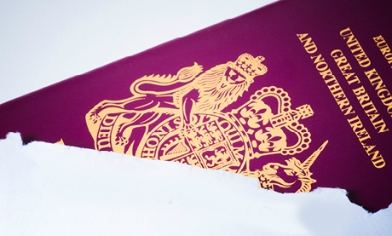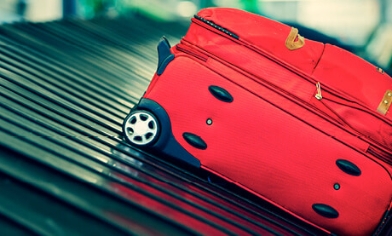Car theft in the UK
Car theft is an issue that affects drivers across the country. A 2025 study by Post Office Car Insurance found that 7% of 2,000 surveyed UK drivers1 had been victims of car theft between 2020 and 2025. This issue is particularly prevalent among young drivers, with 18% of drivers aged 17 to 24 reporting their cars had been stolen during the same period.
In this article, we’ll look at what you can do to reduce the risk of car theft, the most stolen cars, and what to do if your car does get stolen.
How to reduce the risk of car theft
1. Never leave valuables in the car and double check you’ve locked the doors
Thieves tend to be opportunistic, and often target cars with visible valuables like bags, electronics or wallets. Making sure that you’ve locked the doors and hidden or taken any valuables with you is an easy step to reduce the likelihood of a break-in or theft.
2. Make sure you have a car alarm installed
A loud alarm is a good way to draw attention if your car is being stolen. Modern alarms can also send alerts to your phone, allowing for a quick response if someone tries to break into your car.
3. Park in a garage or a secure, well-lit area
Parking in a garage makes it harder for thieves to access your vehicle. If a garage isn’t an option, a well-lit area with surveillance cameras increases the risk of being caught, which makes thieves think twice about theft.
4. Buy a GPS tracking device or a vehicle recovery system
In the event your car is stolen, a GPS tracker helps the police locate and recover it quickly. Some more advanced systems can even disable the engine remotely, preventing further movement.
5. Use a steering wheel lock
Steering wheel locks act as a strong physical deterrent, making it much more difficult for thieves to drive away. Even just seeing that your car has a steering wheel lock can be enough to put off thieves in many cases.
6. Put your key fob in a signal-blocking box if your car is keyless
Thieves like to steal keyless cars because they can copy the radio signals from the key fobs. This lets them take the cars quickly and quietly without breaking in. In the last five years, 62% of respondents who had their car stolen or broken into said their car was keyless.
If your car is keyless, using a signal-blocking (Faraday) box or pouch helps overcome these vulnerabilities, keeping your vehicle secure and preventing theft.
Top cars stolen between 2020 and 2025
While it’s not a given, owning one of the ‘high-theft cars’ in the UK might increase the risk of it being stolen. Criminals often target certain car models more, so it’s important to think about this when buying or protecting one.
Here are the most stolen cars from 2020 to 2025:
- BMW (25%)
- Audi (15%)
- Ford (12%)
- Toyota (10%)
- Kia (9%)
- Citroen (8%)
- Mercedes Benz (4%)
- Nissan (3%)
- Lexus (2%)
- Peugeot (2%)
What to do if your car gets stolen
If your car has been stolen, acting quickly can improve the chances of recovering it. Here are the steps you should take:
1. Contact the police as soon as possible
Call 101 (or 999 if the theft is in progress) to report the crime. Provide details such as your car’s make, model, registration number and any tracking information if you have a GPS device installed.
2. Check for CCTV or witnesses
If your car was stolen near a business, home or public area with security cameras, ask if they captured any footage. Witnesses may also provide useful information.
3. Use vehicle tracking technology
If your car has a GPS tracker or a vehicle recovery system, use it to assist the police in locating your car quickly.
4. Contact your insurance provider
Contact your car insurance provider as soon as possible to report the theft. You’ll need to provide your policy details, crime reference number and any other relevant information. This makes sure your claim can be processed efficiently.
If you have comprehensive cover with Post Office, contact us to make a claim. Depending on the terms of your policy, we may be able to provide access to a car if yours has been stolen or can no longer be driven after a theft, so you’ll still be able to get where you need to be.
5. Notify the DVLA
If your car isn’t recovered, you’ll need to inform the DVLA that it’s been stolen to avoid fines and penalties.
If your insurance company pays out a claim for your stolen vehicle, you must tell DVLA it’s been sold to the insurance company.
Key takeaways
- Although car theft remains an issue in the UK, taking steps to protect your car can significantly lower the risk of it being stolen
- Certain cars are targeted by thieves more than others, so you may want to bear this in mind when buying or protecting a new car
- If your car is stolen, you can take action to give yourself the best chance of recovering it













